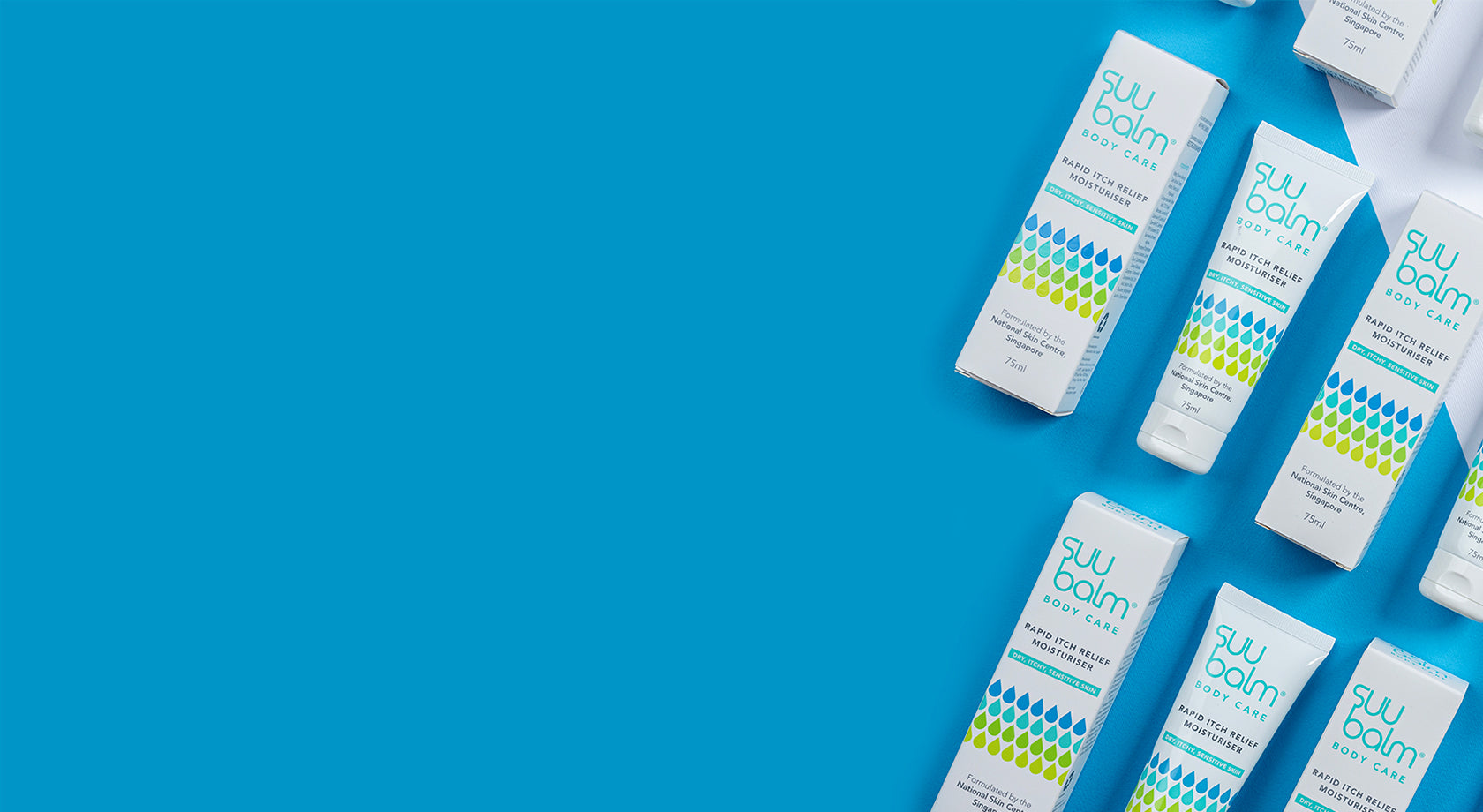Atopic eczema is a condition that affects millions of people and the number of sufferers continues to rise. Chronic scratching can lead to infections and scarring while the psychological effects can often lead to severe anxiety and depression. It is important to manage the condition and allow the patient to have a normal life without the constant pain caused by flare-ups.
Here are some ways you can manage your eczema conditions and alleviate your discomfort.
Emollients & Moisturisers: There are several different emollients available and they come in the form of lotions, creams, and ointments. They are classed as such based on the amount of oil they contain. There are plenty of options out there and, ideally, you should use a mix of emollients such as:
- Ointment for the driest parts of your skin
- Cream or lotion to treat the less dry skin
- Replace soap with an emollient for cleansing your face
- Choose another emollient for cleansing the body
There are many over=the-counter options when it comes to moisturisers. Oils, balms, lotions and creams. But the important thing to note is the ingredients that these moisturisers contain. Many eczema patients are not aware that some ingredients such as parabens and artificial fragrances are allergens and may cause flare ups as they aggravate eczema-prone skin.
Choosing a moisturiser that is gentle and uses safe ingredients is not enough. With eczema patients, the most debilitating factor that patients deal with is itch. So, the important key here is finding a moisturiser that helps to stop the itch. A face moisturiser for eczema from Suu Balm can help. It contains menthol that helps to relieve the itch FAST and contains real, skin-like ceramides to repair the skin barrier. With continued use, it can help to keep your eczema flare ups at bay!
Washes & Cleansers: There are many cleansers out there that claim to help with eczema. Some are made from olive oil, goats’ milk and Dead Sea salt to mention just a few. Choose a wash that works best for you but remember, when you have eczema, your skin barrier is impaired. Washing or bathing for too long may dry out the skin so, it is important to choose a cleanser or wash that is gentle and does not strip the skin of its natural moisture.
You may consider a wash like Suu Balm’s. It is thick, smooth, creamy and contains 5x moisturising ingredients. Best of all, it is ultra, gentle and contains no soaps, sulphate, SLS, SLES, parabens, preservatives or artificial fragrances that may potentially cause a flare up.
Topical Corticosteroids: We’re not here to diss steroids or tell you to avoid them at all costs. Depending on the severity of your condition, using steroids may be important. It is best to check with your doctor whether your condition warrants the use of steroids.
They can range from:
- Hydrocortisone, fluticasone, and mometasone are available for mild forms of eczema and can be in a foam or lotion form.
- Clobetasone butyrate, hydrocortisone valerate, prednicarbate, flurandrenolide, and mometasone furoate are all treatments for medium-level symptoms.
- Amcinonide, halcinonide, and amcinonide are used to treat severe eczema.
- Diflorasone diacetate and halobetasol propionate are used when a high potency cream is needed.
You should check with your doctor the amounts you need and if the treatment will be effective.
Antihistamines
This type of medication affects the blood and blocks the substance known as histamine from working. This effect can relieve itching and the desire to scratch. They are available in drowsy and non-drowsy options and your doctor will explain how the sedative effects will affect you. If the itching is affecting your sleep, they may feel the sedative form of antihistamines will benefit you. The user should be aware that the sedative effects can last into the next day and should be careful when using them.
Usually, doctors may prescribe antihistamines to eczema patients to help stop the itch. However, it is important to note that eczema itch is not necessarily linked to histamines and so, these medications may not always work.
When they do not, try getting relief from anti-itch creams like Suu Balm.
Wet Wrap Treatments/ Garments
There is a range of products that can be worn to help relieve the symptoms of eczema. These can range from eye masks, gloves, pajamas and whole-body suits. These garments are designed to offer the same treatment as wet bandage applications but for longer periods and with less mess.
The garments are made from natural fibers and are thermoregulated to allow the skin to breathe. They are 100% organic and include flat seams and covered zippers to avoid irritation. These types of garments are particularly effective when treating infants as they can be worn for extended lengths of time.
They offer a range of options and can be worn under clothing to replace gauze. Once they have been worn, they are easily washed on a delicate cycle and then laid flat to dry. Check with your medical expert to see what options are out there for your condition.
Corticosteroid Tablets
Rarely used nowadays, these tablets are still an option when a severe flare-up is not responding to other treatments. The treatment will normally last only 5-7 days as prolonged ingestion can lead to severe side effects and long-term medical conditions.
Corticosteroids penetrate the wall of the immune system and once inside can disable the genes responsible for distributing harmful chemicals into the body. Unfortunately, they also affect the body in other ways that can be more troublesome than the eczema they are treating.
Side effects in the short term
- Weight gain and increased appetite
- Loss of sleep
- Fluid retention and bloating
- Anxiety and depression
Side effects in long term use (over 3 months)
- High blood pressure
- Diabetes
- Weight gain
- Lowered immunity to infections
- Loss of muscle mass
- Decreased bone density
- Eye conditions
You should check with your doctor if this treatment is needed for your condition.







